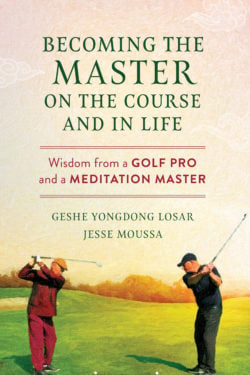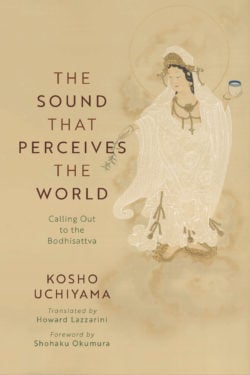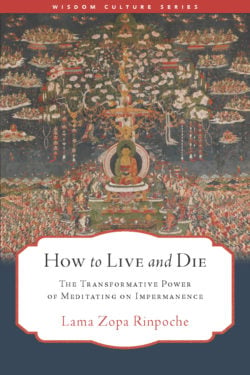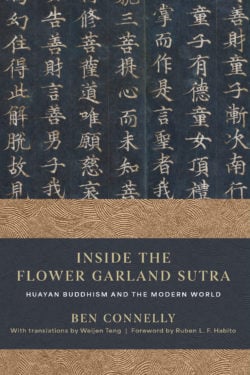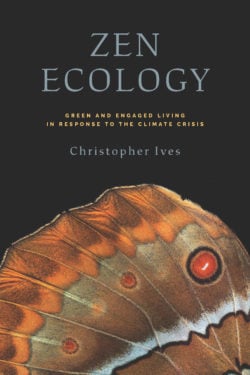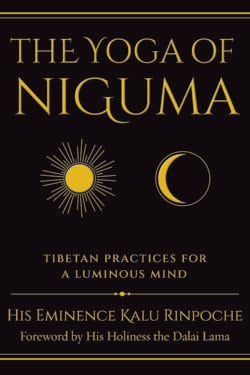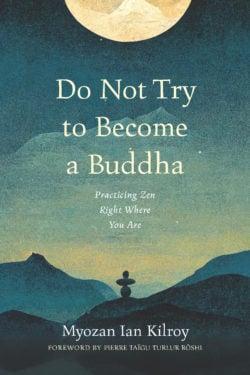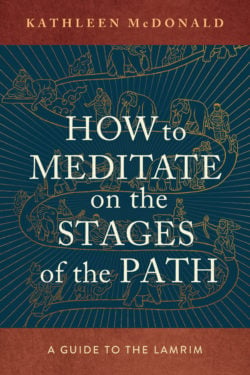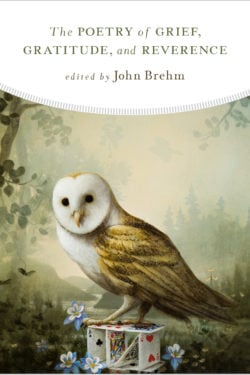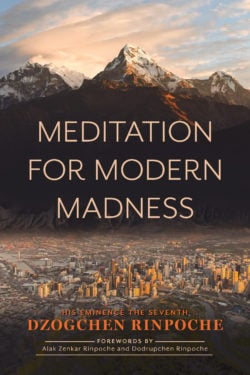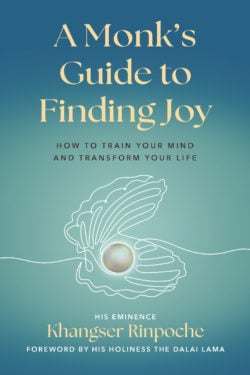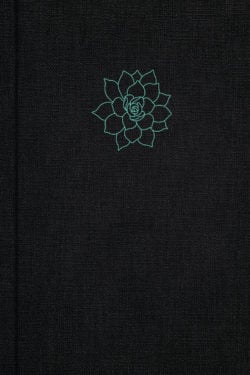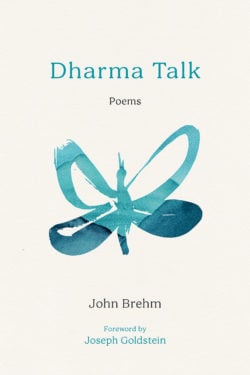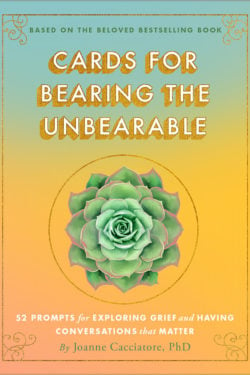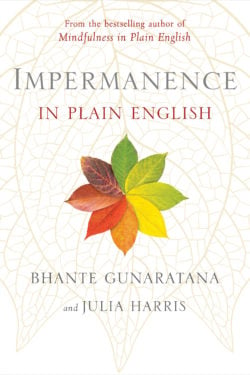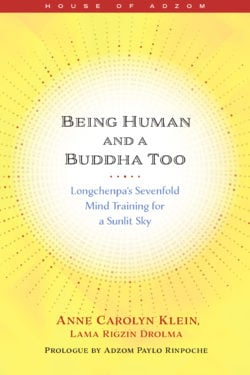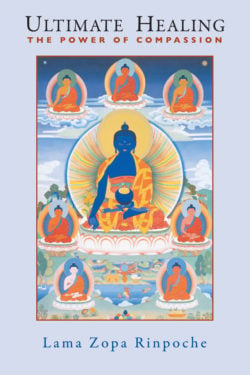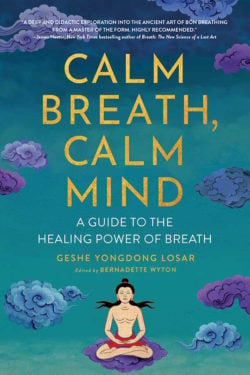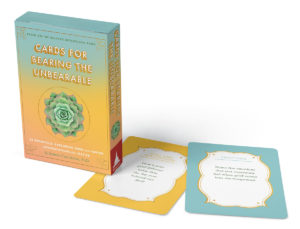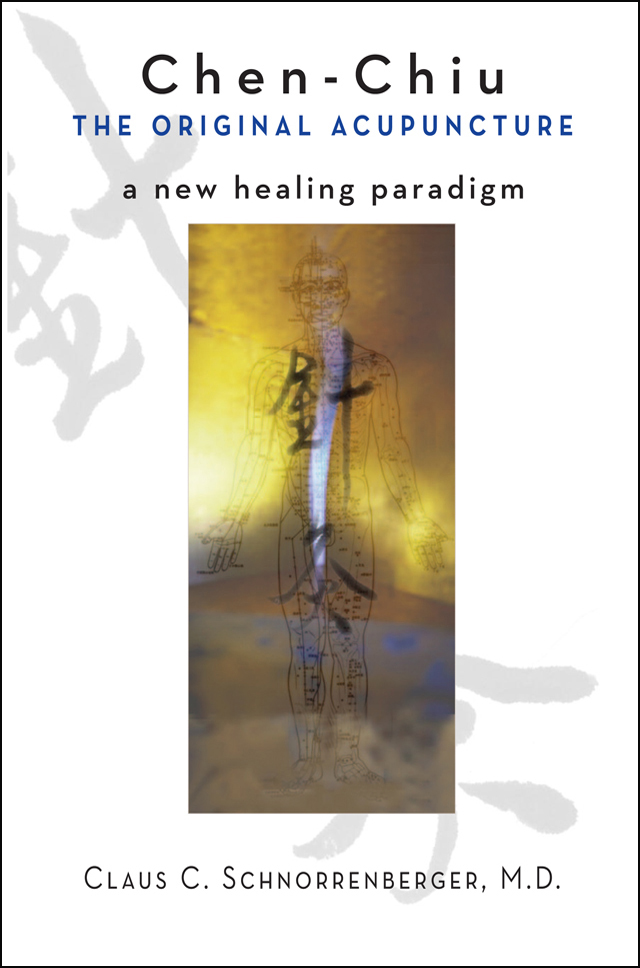
CHEN-CHIU: THE ORIGINAL ACUPUNCTURE
Chen-Chiu: The Original Acupuncture is based on an historic Chinese acupuncture text that remains vital to this day: the Ling-Shu-Jing. Dr. Claus Schnorrenberger, who has produced a well-known translation of Ling-Shu-Jing, here applies his personal medical experience—as a lecturer, and moreover, as an orthodox Western physician and Chinese acupuncturist/herbalist—to the principles of the text.
The result is a new view of the prevailing Western perceptions of Chinese medicines. The author calls into question such concepts as Chi, the meridians, and even acupuncture itself, in order to correct erroneous translations still in use by many to this day. Chen-Chiu provides an epistemological reflection on what Chinese medicine and acupuncture really mean, and adds new contrast and insight into Western and Eastern views of healing. This, the author rightly contends, is essential for the successful integration of Chinese medicines in the West.
Schnorrenberger’s book is well-balanced and much-needed, appropriate not only as a reference for students and practitioners of Chinese medicine, but also as a learning aid for patients, health-care workers and administrators, Western physicians, and more.
- Paperback
- 424 pages, 6.00 x 9.00 inches
- $29.95
- ISBN 9780861711376
“A must for both trained acupuncturists and beginners.” —Journal of the Danish Medical Acupuncture Society
Discover More
Becoming the Master on the Course and In Life
Now available! Save 20% with code BTM20 until February 3.
On the course or in your mind—golf is a game of balance. Here, timeless Buddhist teachings meet golf-pro expertise to elevate every part of your game.
Ever feel like you’ve invested in the best equipment, taken countless lessons, and put in endless practice—yet your game just isn’t improving? Or that your shots look flawless on the range but fall apart the moment you’re in a real match? Maybe you’ve walked off the course frustrated—with yourself, your swing, or even the game itself—forgetting that golf is actually meant to be enjoyable.
Enter a Buddhist master from Tibet, Geshe YongDong Losar, and a golf pro, Jesse Moussa. Drawing on decades of golf experience and centuries of Buddhist wisdom, they team up to reveal the mental side of the sport: how to eliminate distraction, maintain focus and equilibrium, and let your skills grow naturally—like the grass.
This book is your opportunity to learn from two masters how to meet the game with presence, balance, and joy—and to step up to the ball with confidence every time.
Learn about Geshe YongDong’s previous book Calm Breath, Calm Mind.
You may also be interested in Geshe-la’s Calm Breath, Calm Mind course.
The Sound that Perceives the World
Musings and autobiographically informed commentary on the human condition through the lens of the Kannon-gyo—chapter 25 of the Lotus Sutra—connecting Zen and Pure Land Buddhism through the practice of venerating and chanting the names of buddhas and bodhisattvas.
The Kannon-gyo is chapter 25 of the Lotus Sutra, and its focus is the bodhisattva of compassion, Avalokiteshvara, known in China as Guanyin, and in Japan as Kannon or Kanzeon. The text describes the many ways in which calling out the bodhisattva’s name—Namu Kanzeon Bosatsu—can relieve suffering.
Most schools of Zen Buddhism, and especially the Soto school, eschew such practices as chanting the names of buddhas and bodhisattvas, along with venerating such figures.
The eminent Soto Zen master Kosho Uchiyama Roshi, however, while doing hard physical labor early in his career, could not practice zazen—that is, formal sitting meditation. He came to appreciate the Kannon-gyo and the practices related to it. In particular, he took to reciting Kannon’s name, as recommended in the text of the Kannon-gyo.
Later in life, Uchiyama Roshi suffered from illness that again prevented him from practicing formal Zen, so he returned to the Kannon-gyo and the practice of chanting. He went so far as to assert that chanting Kannon’s name is completely equivalent to zazen, that the two practices are simply two sides of the same coin—a revolutionary idea seemingly at odds with Zen.
Chanting practice is especially accessible, as it can be done while working, traveling, or suffering from illness, and other activities that would ordinarily get in the way of formal Zen practice.
With these practices, the Kannon-gyo, and Kannon herself as a backdrop, Uchiyama Roshi muses about the purposes of religion, the goals of religious practice, and the meaning of enlightenment—and their relation to suffering itself.
How to Live and Die
What death is, how we die, what minds we need at death and what happens after death—only by knowing about death and rebirth can we actually fully understand what life is and so learn how to live fully.
—Lama Zopa Rinpoche
There is arguably no truth more foundational to Buddhism than this: everything is impermanent. We can see this in the world all around us; old systems break down, relationships change. Death comes for those we love and, inevitably, for us.
In this book, the late, beloved teacher Lama Zopa Rinpoche walks us through the traditional, revelatory practices of meditating on the fact of impermanence and even—especially—on death itself. Rather than shy away from this reality, we look straight at it, and thus we learn not only how to not fear death, but how to live.
Inside the Flower Garland Sutra
A Soto Zen teacher explores the core teachings of the ancient Flower Garland school of Buddhism through an innovative and engaging narrative showing how to put these teachings into practice.
Huayan Buddhism arose in the sixth century in China rooted in the Mahayana Flower Garland Sutra. The teachings of Huayan and the sutra that inspired it had a profound influence on Chan and Zen. Huayan is relational, practical, and positive. Its emphasis on interdependence, celebration of the sensual world, and diversity of people and practices provides inspiration for what Thich Nhat Hanh called “engaged Buddhism”.
With Inside the Flower Garland Sutra Zen teacher Ben Connelly explains the significance of Huayan teachings for Buddhist practice. Each chapter is a commentary on one of the thirty lines of Uisang’s “Song of Dharma Nature”—a seminal Korean text that summarizes key aspects of Huayan thought—thus providing a broad overview of Huayan teachings and their practical implications for contemporary life, with a mix of testimonies from real-life situations and references to influential Buddhist texts.
Arising fifteen hundred years ago, Huayan has made a deep impact on East Asian Buddhism, and has much to offer during this era when many folks see ever-deepening divisions. Connelly explores how Huayan offers particular wisdom for those concerned about how to care for their own lives as they work to end harms such as ecological devastation, poverty, militarism, addiction, marginalization, and exploitation.
Zen Ecology
Discover a way of living that can help you slow down and stay grounded—and at the same time reduce your ecological impact and engage more fully with the climate crisis.
It may seem as though living ecologically and engaging in activism sacrifices our own enjoyment and happiness on the altar of doing the right thing. In this book, professor, naturalist, and Buddhist author Christopher Ives offers an alternative: a way of living that can actually be more fulfilling than the modern consumerist lifestyle. Rather than deprivation, it can bring us richness.
In Zen Ecology, Chris outlines his environmental ethic as a series of concentric circles, beginning with ourselves and then moving outward into our communities, all the while focusing on spaciousness, mindfulness, generosity, and contentment. At the individual level, we deal with distraction, clutter, and ecological harm. Here, Chris offers ways to help us pay attention, simplify our lives, and lower our impact. Then, we explore how to envision our home as a “place of the Way,” with Zen monastic life as a model for this—without having to be a monk! Next, we realize our embeddedness in nature and emplace ourselves in community with others, including other forms of life. Finally, we build on this basis to engage in activism to create a world that is more supportive of ecological health and spiritual fulfillment.
In this way, we avoid the two extremes of apathy and burnout, and uncover a way of living that is simple, joyful, embedded in nature, connected to others in community, and supportive of collective action.
You may also be interested in Chris’s other books, Zen on the Trail, which explores the broad question of how to be outside in a meditative way, and Meditations on the Trail, which offers do-anywhere meditations that will help you deepen your connection to nature and yourself.
The Yoga of Niguma
Immerse yourself in the extraordinarily transcendent practice of the yoga of Niguma.
The yoga of Niguma comes to us from a secret tradition passed down over hundreds of years by Buddhist yogis in Tibet. The practice originated with the eleventh-century female yogini Niguma, who mastered and transmitted a tradition of remarkable practices that culminate in physical, spiritual, and emotional wellness. In this book, His Eminence Kalu Rinpoche, a Tibetan master who holds this lineage for today’s generation, is now opening up the practice to make its extraordinary benefits accessible to the modern yogi.
The yoga of Niguma consists of twenty-five sets of yogic exercises. Some are physically challenging while others are quite subtle in nature; all are grounded in meditation on the breath. Kalu Rinpoche illuminates the practice by sharing his own personal journey with the yoga of Niguma and how the lineage came to be. He also teaches us how we can prepare the mind for this practice with meditation and how to balance our emotions. Then, Rinpoche takes us step-by-step through the twenty-five illustrated sequences of Niguma yoga. Coauthor Michele Loew, an international yoga teacher, shares supportive Hatha yoga techniques that will bolster your Niguma yoga practice.
The yoga of Niguma is a revered method that integrates body, mind, and breath. Dive in to discover for yourself a gradual, profound groundswell of subtle awakening.
Rinpoche and Michele have recorded two full-length videos that demonstrate Niguma yoga sequences and supportive hatha yoga postures and supplement the instructions in the book. To learn more and watch the videos simply purchase the book and scan the QR code on the Additional Resources page in your copy.
You may also be interested in Rinpoche’s courses from Wisdom, Niguma’s Dream Yoga and The Illusory Body and Mind.
Do Not Try to Become a Buddha
A Zen Buddhist priest paints a picture of Zen in Ireland in this collection of short essays.
In this collection of short essays, Irish Soto Zen priest Myozan Ian Kilroy describes how he came to practice Zen, introduces some basics of Zen philosophy, and recalls the challenges of establishing a Zen Buddhist community in Catholic-dominated Ireland. Along the way, he explores the rituals and practices that Zen brings to everyday life, from holidays to weddings to birth ceremonies to funerals. A former journalist, Rev. Myozan’s clear yet entertaining storytelling style paints a clear picture of how Zen has adapted to the culture and traditions of Ireland.
How to Meditate on the Stages of the Path
Deepen your meditation by diving into the practices of the lamrim—the stages of the path to enlightenment.
Buddhist tradition tells us that enlightenment is possible for each and every one of us. It’s actually the best thing we can do for others and for the world, but also the best thing we can do for ourselves, because it means being free from all misery, pain, depression, dissatisfaction, and negative emotions, and abiding forever in peace, joy, love, and compassion. What could be more wonderful than that?
Kathleen McDonald (Sangye Khadro), a Western nun with decades of experience and author of the bestselling book How to Meditate, guides us through the next step in our meditation practice: the transformative meditations on the Tibetan lamrim stages to enlightenment. She helps us see that the whole purpose of meditation is to transform our mind in a constructive way. For this to happen, we need to become so thoroughly familiar with the lamrim topics that they become our natural way of thinking and living our life. This warm and encouraging guide takes us through meditations on these lamrim topics, such as:
- impermanence
- refuge
- karma
- the four noble truths
- bodhichitta
- the six perfections: giving, ethics, patience, joyous effort, concentration, and wisdom
How to Meditate on the Stages of the Path offers practical advice, support, and step-by-step guidance on how to meditate on the stages of the path to enlightenment that will transform the practice of new meditators and seasoned practitioners alike.
The Poetry of Grief, Gratitude, and Reverence
Explorations on a journey through the darkest and brightest moments of our lives, the poems gathered here are explorations of loss, of thanksgiving, of transformation. Some show a path forward and others simply acknowledge and empathize with where we are, but all are celebrations of poetry’s ability to express what seemed otherwise inexpressible, to touch deep inside our hearts—and also pull ourselves out of our selves and into greater connection with the world around us.
Includes poems by
Rainer Maria Rilke, Robert Frost, Elizabeth Bishop, Czesław Miłosz, Seamus Heaney, Billy Collins, Joy Harjo, Danusha Laméris, Ada Limón, Kevin Young, Arthur Sze, Ellen Bass, Li-Young Lee, Natasha Trethewey, and many more, plus the editor’s essay on appreciative attention.
John had recorded guided poetry meditations to accompany several of the poems found in this anthology. To learn more and listen to these meditations, please click here.
Listen to a Wisdom Dharma Chat with John and host Daniel Aitken recorded in October 2023.
Meditation for Modern Madness
Dzogchen is an ancient Tibetan tradition that is perfect for countering the stress of our modern lives. A simple and quick method, Dzogchen is practical and direct, and open to us all—you simply need to recognize the great potential that is naturally born within everyone.
In his highly anticipated first book, His Eminence the Seventh Dzogchen Rinpoche, Jigme Losel Wangpo, shows us how our everyday lives can be turned into spiritual practice—not only to ease our stress, but to allow the true nature of our mind to reveal itself, right now, on the spot. The Dzogchen view is the highest view, the view from the top of the mountain. We need to build a platform that will hold the view, and Dzogchen Rinpoche provides the meditations and advice for living that will help you do just that. In turn, you’ll find true peace in a mind at rest.
A Monk’s Guide to Finding Joy
A profound and practical guide to uncovering your own wise mind and kind heart.
We all want to find happiness. But how do we go about it? In this easygoing and clear-sighted guide, celebrated Buddhist meditation and philosophy master His Eminence Khangser Rinpoche provides us with down-to-earth advice on how to train our minds and find our own innate wisdom and kindness along the way. He helps us see the profound insight that is open to us all, and how it can awaken us to the truth of the way things are. This insight into the truth, and the practices that help you cultivate this awareness, transform suffering into wisdom and compassion—and ultimately joy.
A Monk’s Guide to Finding Joy brings the ancient Tibetan mind-training tradition into our twenty-first-century lives. Through stories, real-life examples, reflections, and meditation practices—all told with warmth and humor—H.E. Khangser Rinpoche shows us how we can transform the suffering of our life into happiness. When we train the mind from within the context of our difficult emotions, we can find true joy, just as the oyster transforms sand into a pearl.
Bearing the Unbearable
In this journaling book, grief expert Joanne Cacciatore provides support and guidance, as writing prompts, for anyone experiencing traumatic loss and grief. This beautifully designed book offers 52 writing prompts for exploring grief and journaling about those whom we’ve lost. Writing about those we’ve lost can be part of a contemplative practice, alone or with therapists, family, friends, or with a grief support group. However you use this journal and its writing prompts, please take the time to write from the heart, really be with each prompt, dive deeply—and do so with a spirit of love and compassion for all beings, including yourself.
A Note from Dr. Jo:
This journal is an invitation. A passage. An open heart. Use the prompts throughout for deep contemplation. Write your experiences, feelings, memories of your beloved. Know that, wherever you are, you are not alone in this. We grievers, we rememberers, walk the same road, some ahead and some behind. But we walk together. Let this journal be the invisible thread that weaves together our hearts and souls and minds as we endure one more day—together, never alone. Let this journal be a space in which you remember and grieve and explore.
You can also explore Dr. Jo’s books, Bearing the Unbearable and Grieving is Loving, her Cards for Bearing the Unbearable, as well her Wisdom Academy course, Bearing the Unbearable.
Dharma Talk
A new volume of original poetry from the bestselling creator of Poetry of Impermanence, Mindfulness, and Joy.
In Dharma Talk, award-winning poet John Brehm explores the perennial themes of aging, compassion, emptiness, nonseparation, and more. At once poignant and humorous, Brehm’s gentle, wry poems remind us that the personal and the universal are not different—and point us to the Dharma of everyday life.
Click here to watch the author read the poem “Something and Nothing” from Dharma Talk.
Listen to a Wisdom Dharma Chat with John and host Daniel Aitken recorded in October 2023.
Cards for Bearing the Unbearable
Grief sometimes leaves us without words. Yet narrating our feelings, thoughts, and experiences can be so helpful in relating to our inner world. These cards are an invitation to begin that process.
Impermanence in Plain English
The bestselling author of Mindfulness in Plain English guides the reader toward a direct and personal realization of one of the foundational tenets of Buddhism: all things that arise must pass away.
Once-youthful bodies grow old and weary. New thoughts, feelings, and sensations arise and fade every second. Impermanence is not some abstract metaphysical idea. This is the Dhamma, and you can see it for yourself.
Drawing from Pali scriptures and writing with fresh, direct language, Bhante Gunaratana and his student Julia Harris highlight the Buddha’s exhortation that we must directly realize for ourselves the liberating insights that free us from suffering and cyclic existence, without relying only on the word of religious authorities or academic or philosophical musings.
Being Human and a Buddha Too
In writing that sparkles and inspires, Anne Klein (Lama Rigzin Drolma) shows us how to liberate our buddha nature to be both human and a buddha too.
This first volume in the House of Adzom series centers on Longchenpa’s seven trainings in bodhicitta, our awakened mind, the ultimate purpose of our practice and training. Anne Klein’s original composition masterfully weaves in Adzom Paylo Rinpoche’s commentary and Jigme Lingpa’s five pith practices and commentary on the trainings, in keeping with Longchenpa’s skillful integration of sutra, tantra, and Dzogchen, to resolve our most challenging questions about what awakening involves and how it relates to the truth of our human situation right now. As foundational teachings for Dzogchen practitioners, the seven trainings are framed as contemplations on impermanence, the adventitiousness of happiness and its short duration, the multiple causes of death, the meaninglessness of our worldly activities, reliance on the Buddha’s good qualities, the teacher’s pith instructions, and ultimately nonconceptual meditation on bliss and emptiness, clarity and emptiness, and reality itself.
Ultimate Healing
We experience illness on a physical level, but in order to be healed, we must understand where true healing begins: within our hearts and minds. In Ultimate Healing, internationally renowned meditation master Lama Zopa Rinpoche helps us to recognize the root of illness and gives us the tools to create our future happiness. Beginning with stories of people who have recovered from disease through meditation, Rinpoche addresses the central role played by karma and by the mental habit of “labeling” in causing illness, and shows how meditation and other thought techniques for developing compassion and insight can eliminate the ultimate cause of all disease.
Ultimate Healing shows us that by transforming our minds, especially through the development of compassion, we can eliminate the ultimate cause of all disease. In addition to relating stories of people who have recovered from disease through meditation, Lama Zopa presents practical healing meditations, including white-light healing, compassion meditation, “taking and giving”, and techniques to cure depression.
Calm Breath, Calm Mind
Discover ancient Tibetan breath practices for calming your mind and improving your health in this plain-English guide.
Over millennia, many Eastern traditions have developed practices that use the powerful healing energy of breath to treat physical, emotional, and mental problems. In Chinese, this energy is called chi; in Sanskrit it is called prana; and in Tibetan it is called lung.
Lung is life-giving energy that moves through our bodies. A lack or imbalance of lung can create illnesses of body and mind or cause emotional struggles such as confusion, anger, and sadness. In this book Geshe YongDong Losar, a scholar and monk in the ancient Bön tradition of Tibet, guides us through time-tested practices to help balance our lung. His deep knowledge—garnered through years of study and practice—renders the practices simple and achievable, creating a clear path for us toward greater calmness, strength, and clarity.
“Over and over I have personally witnessed, both in myself and in my students, the breath’s clear potential to heal and deeply transform lives. I truly believe that in the future such practices will play an important role as a medicine for preventing and treating physical, emotional, and mental maladies. I am glad that Geshe YongDong is making these practices widely available, and I’m sure that by doing so, he is bringing benefit to countless lives.”
—from the foreword by Geshe Tenzin Wangyal Rinpoche


